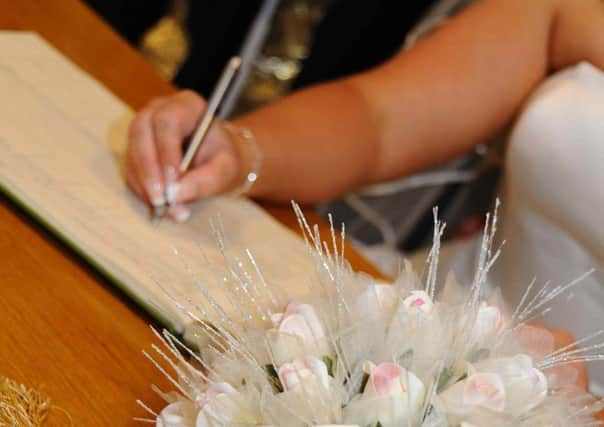Opinion: Tinkering with the traditions of the wedding ceremony


The only wedding that I have attended that was not in a church or a register office was in a farm yard in Derbyshire where they had rigged up a tent; it is apparently forbidden to marry in the open air. It lacked gravitas. On the west coast of America it is almost compulsory to get married outdoors.
Anyway, there is a move to overhaul the laws governing marriage in order to get rid of some of the anomalies that have arisen from occasional tinkering in the past. Until only recently it was illegal to get married in the dark, that is, after nightfall – a room with no windows was fine, but the rules were silent on the possibility of tying the knot during a total eclipse. I suppose that the problem was that clergymen, eyes dimmed by years of Bible study, were in danger of marrying the wrong people. Modern lighting has changed all that.
Advertisement
Hide AdAdvertisement
Hide AdWeddings conducted by registrars are strictly civil ceremonies during which hymns and prayers are forbidden. I was intrigued by a report that a couple who wished the phrase “in sickness and in health” to be uttered during their civil wedding were told by the registrar that it is not permitted because it is “too religious”. As opposed to a little bit religious, I suppose. Obviously this registrar was familiar with the Book of Common Prayer and alert to all its dangers.
It prompts the thought that scrupulous registrars throughout the Kingdom are scouring the prayer book and both Testaments in search of tempting phrases that might lead astray couples who are inclined to be creative. And possibly risking their eyesight in the process.